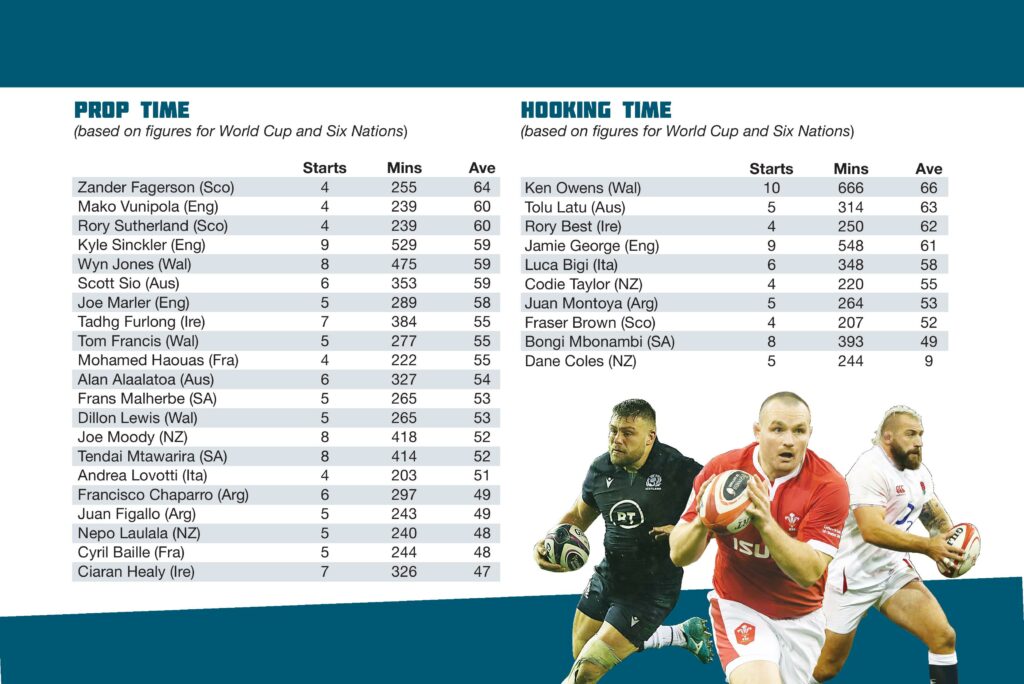Before ending his impromptu condemnation of the State of the Union, Willie John McBride fired a parting shot straight out of the ‘and-here’s-another-thing’ manual.
True to form, the Ulsterman whose total of five tours and 17 Tests makes him a Lion among Lions, gave it straight from the shoulder: “What’s more, they can’t play for the full 80 minutes.”
That criticism of the modern player’s powers of endurance, or lack of them, raises the question of how many, or more pertinently how few, forwards go the full distance. In McBride’s largely substitutes-free era, of course, they had no option but to go from start to finish.
The four Home Unions considered the idea of subs to be avoided at all costs. Substitutes smacked of football and professionalism which explained why when they were first allowed in the late Sixties, they did so as ‘Replacements’, and then only in the event of injury.
Tactical changes were not allowed until scheming coaches found a way to make them but not before some props had been exposed to an 80-minute beating. Sandy Carmichael, arguably the most heroic of Lions, took such a pasting from the ‘Butchers of Canterbury’ in Christchurch in 1971 that the Scottish loosehead finished with five fractures to the same cheekbone.
The Glaswegian refused to retaliate because he considered being sent off the ultimate stain on a player’s record. Rather than rock the boat at a time when the Establishment took a dim view of anyone highlighting on-field brutality, Carmichael suffered in silence.
In more enlightened times, those who punched him would have been named and shamed. Instead the New Zealand referee at Lancaster Park allowed the home team to carry on punching without the remotest danger that they would be sent off.
In sharp contrast to his 20th century amateur predecessor who did it all purely for the love of the game, the 21st century professional plays a shorter game albeit a more dynamic one. The average game-time for Test props has been reduced by a quarter to barely an hour which, given England’s £25,000 match fee, works out at more than £60-a-minute, or £1 every second.
Of the scores of international matches involving Tier 1 countries since last August, I can find only one instance of a prop going the full 80 minutes as timed by the game-clock: Ellis Genge for England against Wales at Twickenham in the first of the World Cup warm-ups.
Maybe Eddie Jones forgot that he had one unused sub, or ‘finisher’ as he prefers to call them, still on the bench. Whatever the head coach’s rationale, Joe Marler twiddled his thumbs leaving Genge to do something every prop used to do as a matter of routine.
What was once the rule is now the exception. Throughout the 2019 Six Nations, Allan Dell stood out as the only 80-minute prop among the Home countries, on the loosehead for Scotland against Wales.
Nobody has been asked to do it since although a few have come close, Dillon Lewis lasting 78 minutes for Wales against the All Blacks in Japan. His French counterpart, Mohamed Haouas, went 60 seconds longer against Wales in Cardiff but lost ten minutes to a yellow card en route before the red one at Murrayfield brought his season to a halt before the coronavirus.
Since the increase in subs stretched the 15-man game to 23 and allowed every team to pick two front rows, ample evidence can be found to support the theory that at Test level propping shifts are getting shorter as a consequence. As recently as 2016, Dan Cole completed three Six Nations appearances on the England tighthead without missing a second, against Scotland, Ireland and France.
In the same year, Alasdair Dickinson was there throughout for Scotland against Italy and Tom Francis did likewise for Wales against Argentina, invariably the acid test of scrummaging ability.

Hookers are also beneficiaries of the less-is-more principle despite a few manful attempts to remind the sceptics that they can go the course with the best of McBride’s day. Dylan Hartley, for example, went the full 80 during back-to-back Tests against Argentina at San Juan and Santa Fe in 2017.
At the same time, Jamie George did the same for the Lions during their Second Test win over New Zealand in Wellington. Stuart McInally emulated Hartley’s double for Scotland against England and France in 2018, likewise Malcolm Marx for the Springboks during the Rugby Championship the previous year.
Rory Best played every minute of Ireland’s win over Scotland at Yokohama last autumn, defying the ageing process at the grand old age of 37 only to make an early exit, the victim of Ireland’s chronic failure to make it beyond the last eight.
Rugby, like football, used to be a contest between 30 players, not 46. As long as the perennial talk about reducing substitutes remains little more than hot air, the 80-minute front row men will have gone the way of the Dodo, the Winklepicker and the Brooklyn Dodgers.
Most of them already have.
PETER JACKSON























